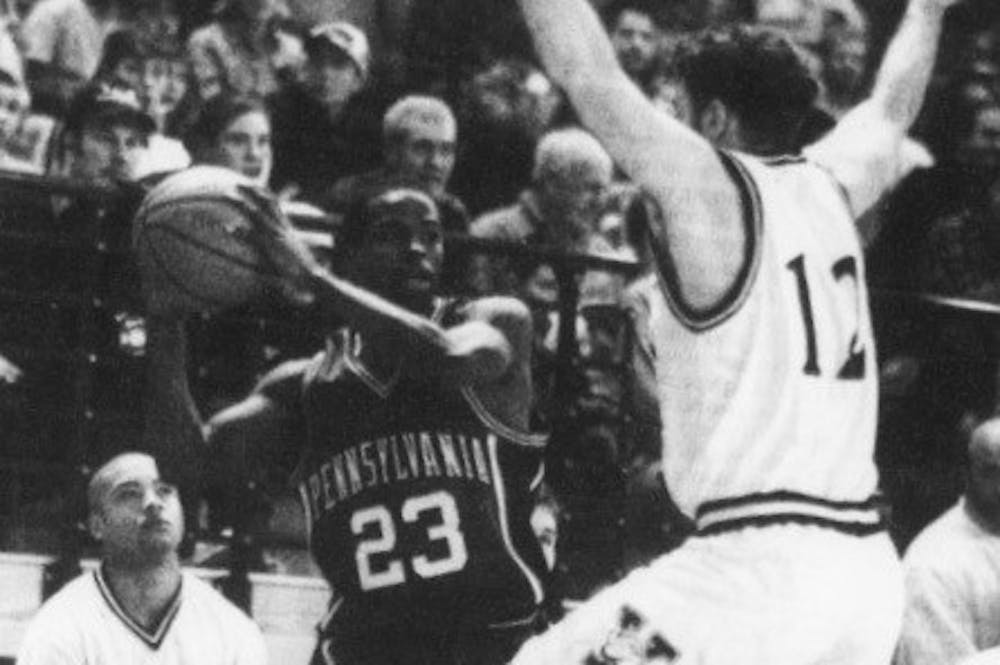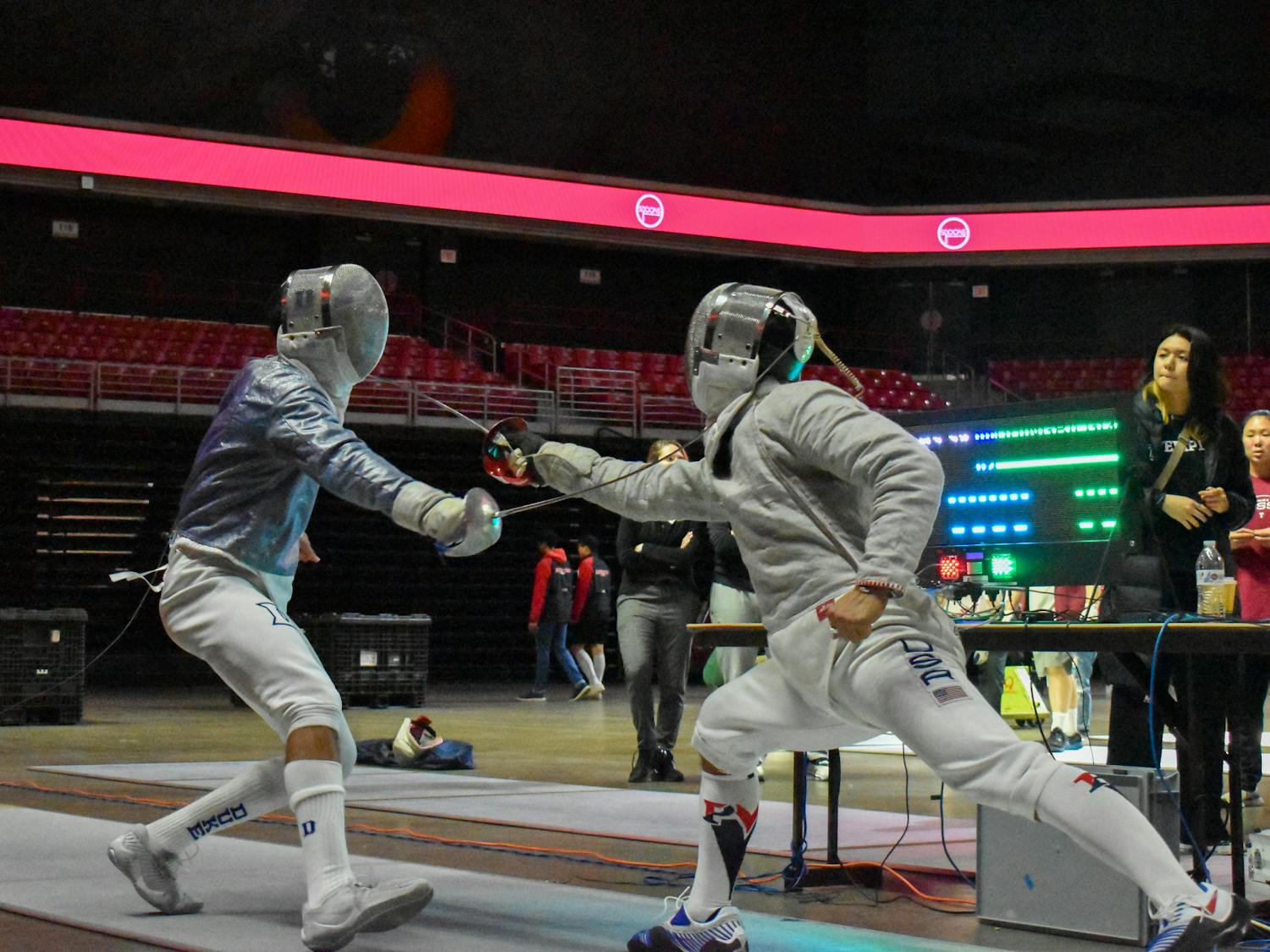The rivalry between the Quakers and the Tigers has been ongoing since 1903, making it the third-oldest consecutively played rivalry in NCAA Division I history. The Penn-Princeton rivalry has all the components of a good sports rivalry — close geographical proximity, distinct styles of play, and passion for the game on both sides.
On Feb. 9, 1999, the rivalry was taken to a whole new level in the game that came to be called “Black Tuesday.” The Tigers, who were riding a 10-game winning streak at 6-0 in Ivy competition, came to The Palestra for the season’s first meeting.
Tiger’s shooting guard Brian Earl opened the scoring with a three-pointer, but the Red and Blue answered by scoring 29 points to stake a 29-3 lead. Throughout the first 15 minutes of the game, cheers of “You’ve got three points” echoed around The Palestra. At the half, the Quakers led by a score of 33-9, and some in the media have said this was achieved in the best 20 minutes ever played by the Quakers. Two minutes into the second half, the Red and Blue extended their lead to 40-13.
With the Tigers behind, Princeton coach Bill Carmody called a timeout. Carmody is alleged to have suggested to the team, “You are smart guys, you figure it out.” Little did Carmody know that the fourth-greatest second half comeback in NCAA history was about to happen.
Earl, rookie center Chris Young, and forward Mason Rocca helped the Orange and Black score an astonishing 37 points in the second half. Rocca went 5-for-9 from the field, scoring 13 points and becoming one of the heroes of the night. Young’s hook shot gave the Tigers a 50-49 lead with only 2:14 remaining. Quakers’ guard Matt Langel’s final attempt for the Red and Blue to win back the lead rimmed out in the closing seconds, leaving Penn fans in agony. Neither the Quakers nor the Tigers scored again and “Black Tuesday” went into Palestra history.
“At the time, that game was a really hard game to lose,” said Steve Donahue, a coach at Penn from 1990 to 2000. “That team was resilient though, and it says a lot about a team if you can turn around and win 21 straight Ivy games.”
“When the game was over, when we got the rebound and had won, there wasn’t even that much jumping up and down, there was such disbelief,” Carmody said, as reported in the Los Angeles Times.
Just a month later, the two teams yet again tested each other for the Ivy League title in a game called “Kings of the Court” on March 2, 1999. By defeating the Tigers, 73-48, at Jadwin Gymnasium, the Quakers secured the Ivy League title from the Tigers for the first time in four years.
Between 1963 and 2007, either the Tigers or the Quakers won or shared the Ivy League championship every season except 1986 and 1988. This was also the first time in four years that the Red and Blue won the Ivy League championship, which the Tiger’s had won for the past three years.
While “Black Tuesday” was not a good game for the Quakers, they returned the favor at the Palestra six years later with a four-point play sparking an 18-point comeback in the final seven and a half minutes. The Palestra has come to hold some of the most memorable moments of the Penn-Princeton rivalry.
“To have this, with what’s at stake, in this building, between Penn and Princeton, that’s why you come to these places to play,” said Donahue. “You want to play in these types of games.”









